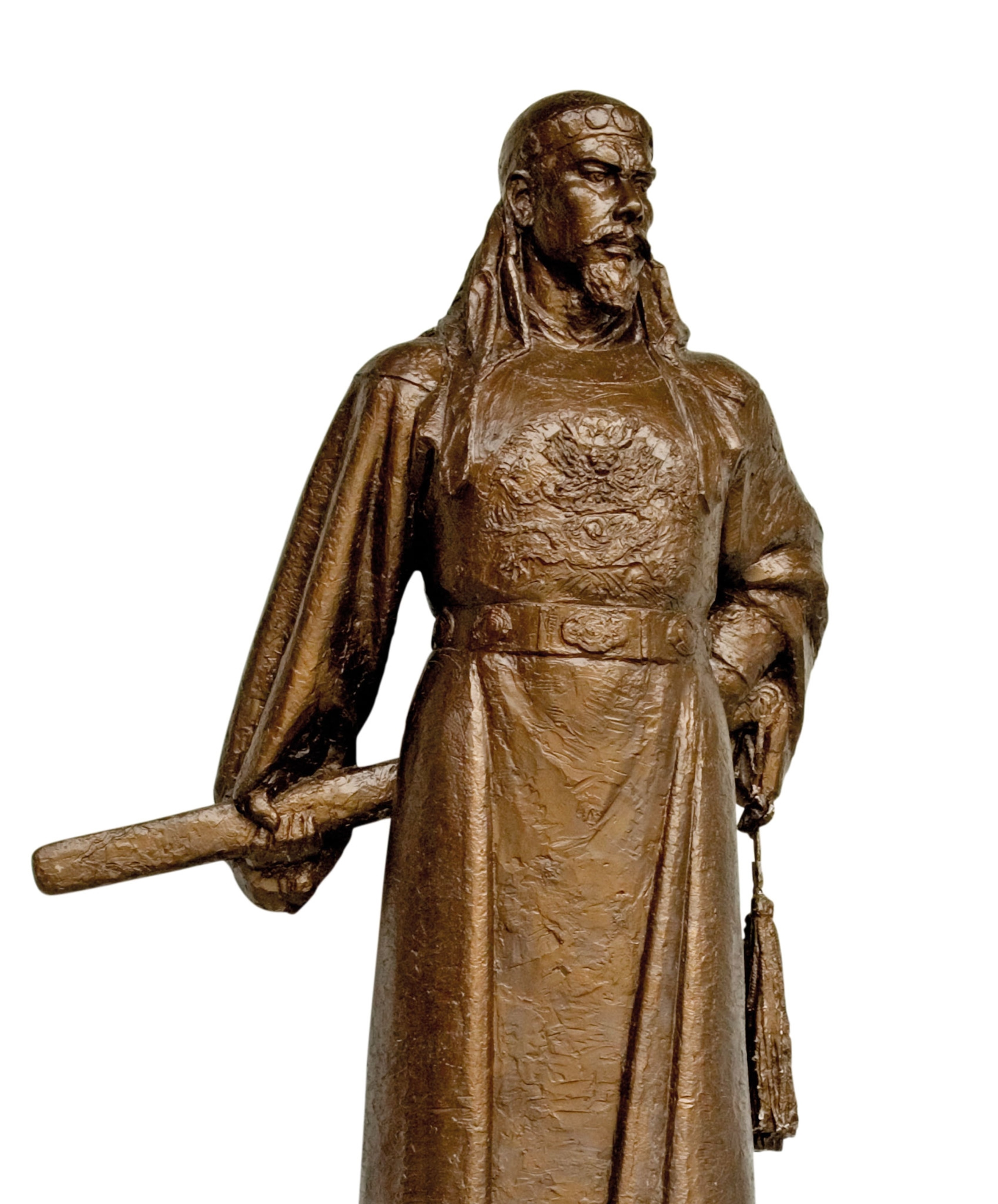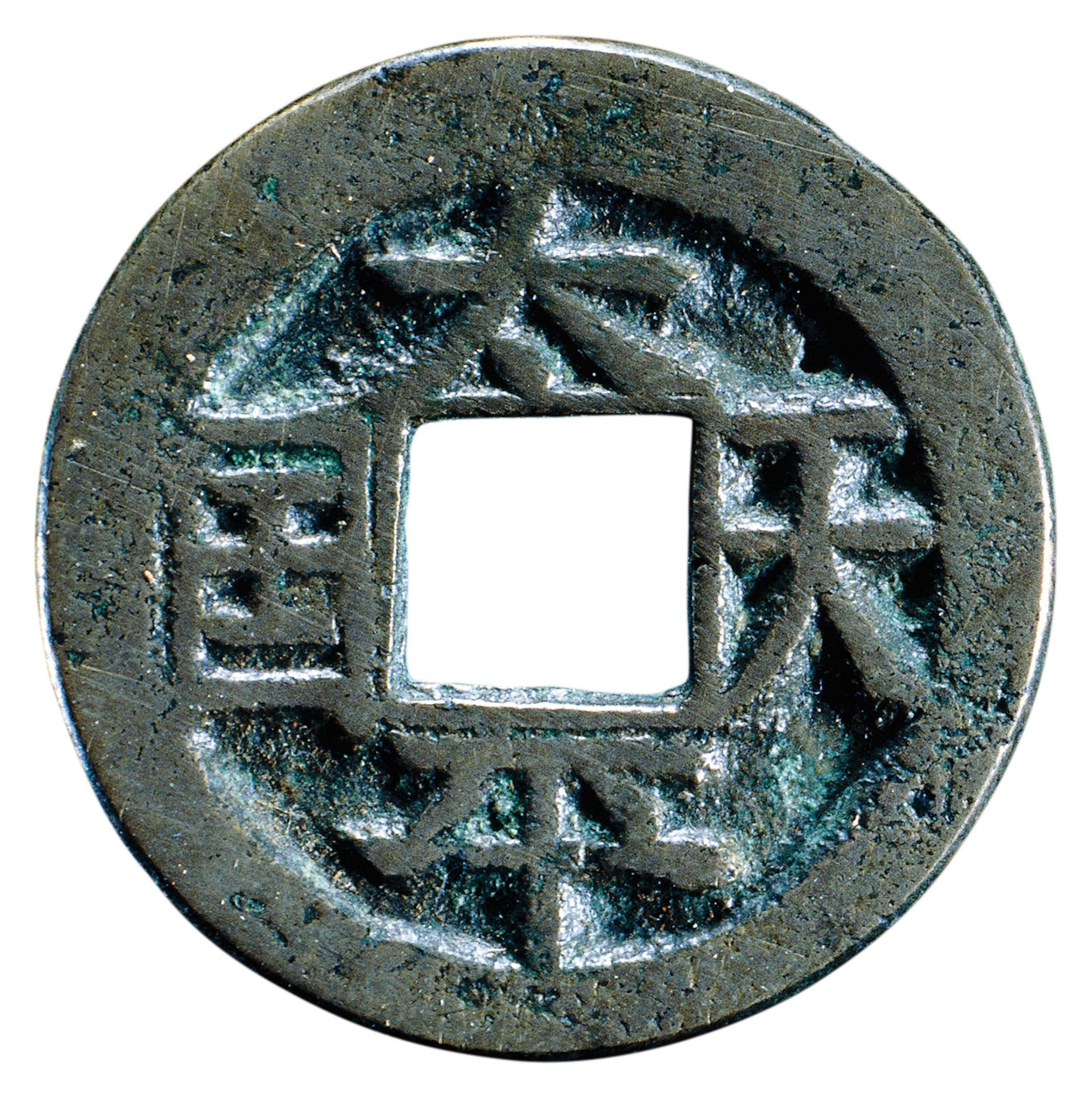
This religious revolt nearly toppled China's last imperial dynasty
The Taiping Rebellion and its self-proclaimed messiah threatened the Qing dynasty's hold on China as the nation battled Europe in the Opium Wars.
Failure of a civil service exam led to one of the most important political events in Chinese history: the Taiping Rebellion. This social and spiritual upheaval of the mid-19th century was led by Hong Xiuquan, who was born in 1814 in the Guangdong Province of China. Hong’s academic struggles put him on the path to religious zealotry and leadership of peasants of southeastern China in a mass movement that threatened the security of the ruling Qing dynasty and led to the deaths of millions.
Hong’s family belonged to a marginalized ethnic group, the Hakka, who had their origins in northern China but migrated to the southern regions in the 13th century. The Hakka retained their own separate culture and never fully blended into the local culture in southern China. Their traditions and language remained distinct.

Hong Xiuquan’s family and friends saw great promise in this son and made great financial sacrifices to fund his education. If he were able to pass the Confucian civil service examination, Hong could become a government official, which would bring both wealth and prestige to his people.
Tests and trials
To take the exams, Hong had to travel to the provincial capital, Guangzhou. He first took the exam there in 1827 but failed; he returned home and earned his living as a schoolteacher. Hong did not give up and made two more trips to the city to take the exam. He failed both times and suffered a nervous breakdown after his attempt in 1837. During his illness, he allegedly had visions of visiting heaven and speaking to two holy men—one with a golden beard, the other he identified as an older brother—who warned him that the world was overrun with evil spirits. After his recovery, he returned to teaching.
Hong took the civil service exam for the fourth, and last, time in 1843 and failed again. In his despair, he consulted some literature a Christian missionary had given him on one of his previous visits to the capital. Western missionaries were common in China during this time, and Hong had encounters with several of them. Reviewing the tracts, Hong applied Christian theology to his visions and identified the bearded man as God, the older brother as Jesus, and saw himself as the second son of God who had been sent to save China from evil spirits in the form of the Qing dynasty, China’s governing dynasty. He converted to Christianity and began to spread his own teachings in the region.
Well rounded

The Taiping leader Hong Xiuquan was a Hakka, a people originally from China’s northern province of Henan, who settled in southern China after the 13th century. A Hakka settlement in Fujian was designated a UNESCO World Heritage site in 2008 and features 46 tulou, earthen structures (either circular or square) that could house hundreds of people.
The Qing’s Manchurian ancestors toppled the Ming dynasty two centuries before and had held power since then. Under their rule, China’s population tripled, but in the 1800s the regime was challenged by the realities of an industrializing world and the growing might of colonial Europe. (Discover whether the Great Wall of China worked.)
During the period of Hong’s religious awakening, the Qing were defeated by the British in the First Opium War, which ended in 1842. China was forced to engage in unequal trade with Britain and to give up territory, including the island of Hong Kong. This humiliating defeat, along with economic misery, widespread inequality, and the effect of Western Christian and democratic ideas, helped stoke tensions.
March of millions
Hong Xiuquan first began preaching his own interpretation of Christianity among his closest circle and began to attract many followers, including a similar organization in the neighboring province of Guangxi. There, a large population of peasants, of whom many were Hakka, found hope and purpose in Hong’s vision.
Political dissidents also saw it as a vehicle to resist the Qing regime. In 1851, when the movement had attracted many thousands of adherents, the Taiping Tianguo—“Heavenly Kingdom of Great Peace”—was established, with Hong as both its spiritual and political leader. (The surprisingly simple origins of the Silk Road.)
The Taiping had soon organized themselves and were ready to mobilize. In addition to their Christian doctrine, they believed that men and women were equal, that all property should be commonly held and distributed—ideas that were very attractive to poor farmers, laborers, and miners in the region. All members were soldiers of the kingdom, regardless of their origin and social background. Their growing numbers concerned Qing officials, and they sent forces to attack them in 1851. Taiping troops soundly defeated them. In a year, membership of the kingdom rose to a million. Overcoming Qing resistance, the Taiping pushed northeast, picking up more recruits as they marched into the Yangtze River basin.

In March 1853 the Taiping, whose numbers were around two million, captured the city of Nanjing, which they renamed Tianjing, meaning “heavenly capital.” The fall of this major city marked a tremendous blow against Qing authority. Faced with the establishment of a rebel state, the Qing attempted to crush it.
Hong, meanwhile, made plans to consolidate the Heavenly Kingdom’s power and planned the so-called Northern Expedition to conquer the Qing capital, Beijing. Tianjing forces left Nanjing in May 1853 and planned to recruit more followers by proselytizing along the march. Their plans were thwarted by clumsy strategic planning that wore down the participants’ enthusiasm. In spring 1855 the Taiping began to retreat. The failure of the Northern Expedition seemed to augur an imminent fall, but the Heavenly Kingdom would prove remarkably resilient by scoring impressive military victories. Imperial troops managed to encircle Nanjing, but the outbreak of the Second Opium War between the Qing and Britain and France, distracted the government from fully putting down the rebellion. (China’s greatest naval explorer sailed his treasure fleets as far as East Africa.)
Inner turmoil
Despite its successes on the battlefield, intrigue and dissent plagued the Taiping court. Hong Xiuquan’s mental state had been deteriorating, which prompted some of his generals and advisers to challenge him. Their efforts failed, and a violent purge followed in 1856.
A different direction

By the late 1850s the Taiping leadership under Hong Xiuquan’s cousin, Hong Rengan, took the movement in a markedly less religious direction. Hong Rengan attempted to introduce railroads, modern banking, telegraph systems, and hospitals as part of a program to improve both trade and social equality
Continuing political instability and some notable defeats, such as the 1857 rout of the Taiping by Qing forces at Ruizhou, further weakened the revolt. In 1859 Hong Rengan—a cousin of Xiuquan, and one of his earliest recruits—seized control of the movement and set out to modernize its government along Western democratic lines. He enacted reforms in education and prohibited prostitution, the sale of slaves, and opium. He also opened Taiping territory to trade with foreigners. (Meet the controversial empress dowager who modernized China.)
Despite some remarkable progress in these areas, the Taipings’ fate was sealed by the defeat of the Qing in the Second Opium War in 1860. Having once again succumbed to European forces, the Qing found that their former assailants were now ready to offer assistance in ending the Taiping Rebellion. The rebels posed a growing threat to European economic interests in China for their frequent (albeit unsuccessful) attempts to conquer Shanghai. Foreign adventurers, such as the American Frederick Townsend Ward and the Briton Charles Gordon played key roles in rebuffing Taiping attacks on the port. Increased collaboration between the Western powers and the Qing rulers allowed influential military leaders, such as Zeng Guofan, to begin modernizing the imperial army.
Nanjing withstood two long years of siege, but in 1864, its fall looked imminent. In June that year, Hong Xiuquan committed suicide. One month later, the Qing forces entered Nanjing and took the city. The rebels were hunted down and executed. The rebellion was over.
Any pockets of Taiping resistance were wiped out, but the Taiping’s legacy was deep and lasting. Qing control was so weakened by the rebellion that it would fall from power in the early 1900s, while the egalitarianism of the Taiping would go on to inspire the Chinese Communists who rose to power in the 1940s.